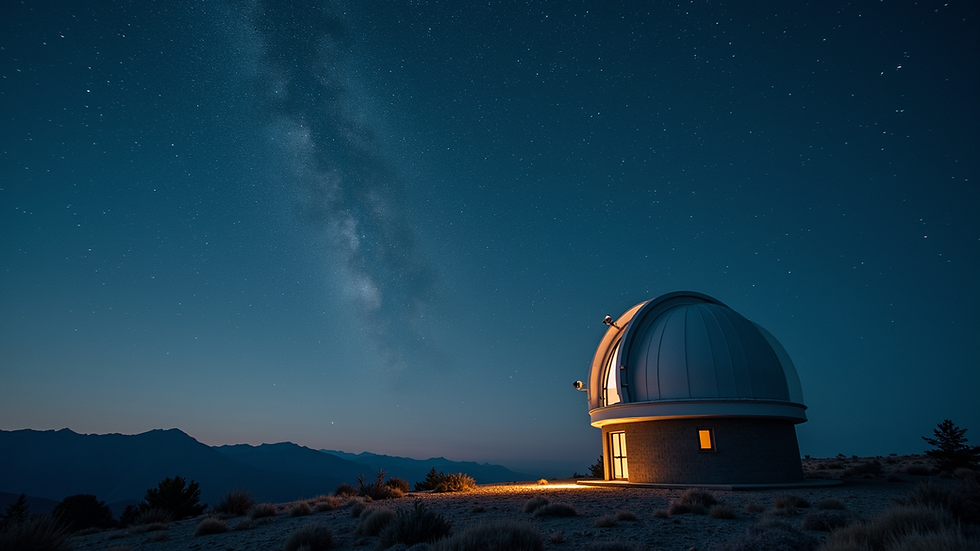The Connection Between Gravity and Cosmic Entropy in Modern Physics
- April C.

- Jul 30
- 4 min read
The concept that gravity may not be a traditional force but rather a byproduct of the universe’s inclination towards disorder aligns with a fascinating perspective discussed by physicists for decades. This idea, once considered fringe, is gaining traction as we delve deeper into the relationships between cosmic entropy and gravity.
Recent scientific advances give us more tools to explore whether gravity originates from the universe's tendency to evolve into a more disordered state. As researchers formulate hypotheses and potentially conduct experiments, the existing paradigms of physics may be challenged in unprecedented ways.
Understanding Gravity: More Than Just a Force?
Traditionally, gravity has been recognized as one of the four fundamental forces of nature, alongside electromagnetism and the nuclear forces. It is often described by Isaac Newton’s law of universal gravitation and by Albert Einstein’s general relativity.
However, the notion that gravity is merely an emergent phenomenon resulting from the universe's tendency towards entropy invites a deeper philosophical and scientific inquiry. In simple terms, gravity could be seen as a consequence of disorder rather than a force acting in the conventional sense.
This concept isn't entirely new. The idea traces back to theorists like Erik Verlinde, who argued that gravity is an entropic force — a result of changes in information associated with the positions of material bodies.
Entropy: The Tendency of Disorder
Entropy, in thermodynamics, is a measure of disorder or randomness in a system. The second law of thermodynamics states that in any isolated system, entropy tends to increase over time, leading systems toward equilibrium or disorder.
When considering gravity through the lens of entropy, one can start to see gravity not just as a force pulling objects together but as something that emerges from the distribution of space and energy throughout the universe. Essentially, as matter moves toward a more disordered state, gravity manifests to pull mass together, which could lead to a more organized structure despite the overall trajectory toward disorder.

The Cosmic Web and Structure Formation
The question of how gravity interacts with cosmic entropy bridges two essential topics in modern astrophysics: the cosmic web and structure formation. The universe is composed of vast filaments and voids that create what is known as the cosmic web.
Investigating how gravity behaves within this architecture leads to intriguing conclusions. The gravity that binds galaxies and galaxy clusters is potentially a consequence of the entropy associated with the dark matter and visible mass of the universe.
The emerging theories suggest that as structures form and evolve, the entropy of these systems can fluctuate, leading to gravitational effects. This idea calls for a fresh perspective on gravity, potentially reshaping our understanding of the cosmos.
Testing the Theory: New Experimental Approaches
Recent technological advancements in astrophysics and theoretical physics enable scientists to test whether gravity is indeed a manifestation of entropy. Projects that investigate gravitational waves, dark matter, and the cosmic microwave background may provide insights into this revolutionary idea.
Innovations in measuring gravitational interactions and the behavior of matter at cosmological scales could decisively yield evidence for the entropic nature of gravity. Such experiments might not only validate or refute Verlinde's proposals but could also spark new theoretical developments in our understanding of the universe.

Implications for Modern Physics
If gravity is indeed an emergent force linked to cosmic entropy, the implications for physics are staggering. Current models would need to reconsider frame works within which gravity operates.
Moreover, such a breakthrough might provide pathways into solving longstanding problems in theoretical physics, including the reconciliation of general relativity with quantum mechanics. The convergence of these ideas could illuminate pathways to understanding phenomena such as black holes and the origins of the universe itself.
A Paradigm Shift in Cosmic Understanding
Considering gravity as a new kind of force arising from cosmic entropy invites not just scientific inquiry but philosophical reflection on how humanity understands its place in the universe. This narrative fosters a profound awareness of the interconnectedness of all cosmic phenomena.
As we delve deeper into the mechanics of the cosmos, the possible intertwining of gravity with entropy might become a cornerstone of modern physics. As explorations in this field continue, it is a reminder of the ever-evolving nature of scientific knowledge—often challenging our preconceived notions about the universe.
The relationship between gravity and cosmic entropy presents a compelling frontier in modern physics. As researchers continue to test these emergent theories, the narrative surrounding gravity may shift dramatically.
By reconceptualizing gravity as a byproduct of the universe’s inherent entropy, we may uncover new realms of understanding about not just gravity itself, but also about the overall structure of the universe.
As we journey through these questions, it is essential to remain open to the wondrous complexities of the cosmos, for in these complexities lie answers to the profound mysteries of existence. The future of physics may hinge not just on measuring forces, but on deciphering the universe’s compelling narrative of order and chaos.
As researchers embark on this quest, the interplay between gravity and cosmic entropy may reveal truths that reshape humanity’s perception of reality and our connection to the universe around us.
By: April Carson
---
Out-of-Body Experiences & Astral Projection | Emilio Ortiz on Third Eye & Consciousness
Ready to elevate your consciousness and expand your mind?








Comments